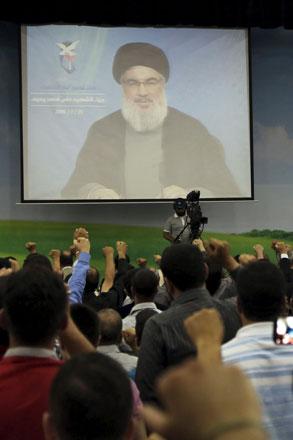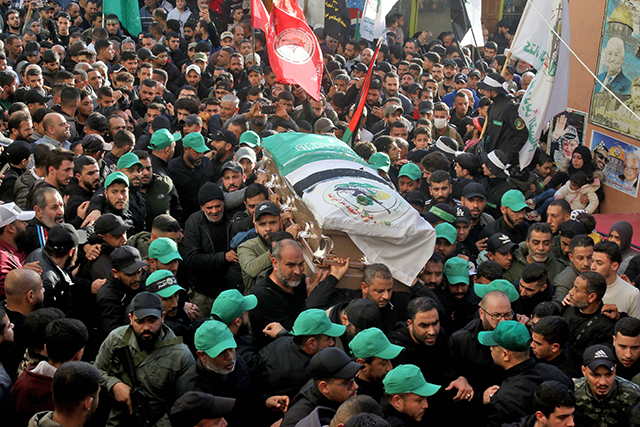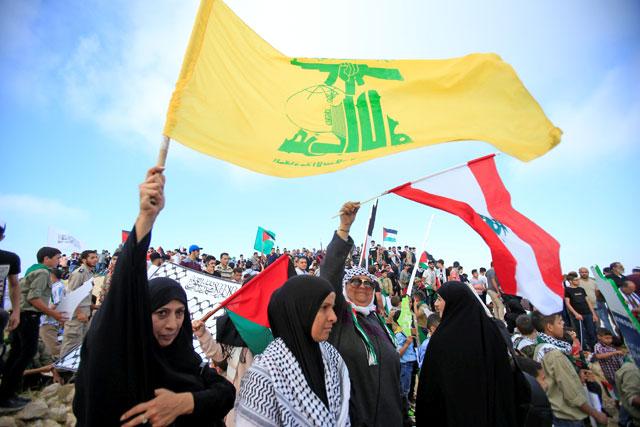You are here
US targets Hizbollah, brands Nasrallah’s son a ‘terrorist’
By AFP - Nov 14,2018 - Last updated at Nov 14,2018
WASHINGTON — The United States on Tuesday branded the son of Hizbollah's leader a "terrorist" subject to sanctions as it offered rewards to capture three militants in Lebanon with close ties to Iran.
In a series of back-to-back actions, the US vowed to aggressively counter the regional ambitions of Iran a week after imposing sweeping measures intended to cripple the cleric-led country's economy.
It also marked a new US pressure tactic inside Lebanon, whose prime minister-designate, Saad Hariri, has been at a political crossroads with Hizbollah — considered a terrorist group by Washington but also a major political faction among the communally sensitive state's Shiite Muslims.
The State Department declared Jawad Nasrallah, the son of Hizbollah's leader Hassan Nasrallah, to be a "global terrorist," meaning any US-based assets will be blocked and Americans will be forbidden from any transactions with him.
"Hizbollah's destructive actions have endangered the Lebanese people," Nathan Sales, the US ambassador-at-large and coordinator for counterterrorism, told reporters.
He accused Hizbollah — the only of Lebanon's political parties that did not disarm after the 1975-1990 civil war — of "effectively using civilians as human shields" by hiding missiles in population centres.
"Hizbollah's ability to destabilise is not confined to the Middle East, however. It is able to destabilise inside Lebanon itself," he said.
Rewards for three men
Sales also held up "Wanted" posters for three men in Lebanon for which the United States will offer $5 million for information leading to their location.
They included Hamas deputy leader Saleh Al Aruri, who is seen as the key liaison between the Palestinian Islamist movement and Iran and who lives in Lebanon.
The United States linked Aruri in particular to the 2014 murder of three Israeli teenagers in the West Bank including one, Naftali Fraenkel, who was a dual US-Israeli citizen.
Also on the posters were Khalil Yousif Harb and Haytham Tabatabai, both accused of commanding Hizbollah's growing military operations around the Middle East.
Iran's rival Saudi Arabia in 2015 imposed its own sanctions on Harb over Hizbollah's role in Yemen, where Saudi-led coalition has been pounding Houthi rebels and infrastructure in what the United Nations calls the world's worst humanitarian crisis.
The United States cited the Saudi designation in its own action, despite Washington's recent criticism of the kingdom over the killing of dissident writer Jamal Khashoggi in its Istanbul consulate.
Hizbollah — founded during the civil war by supporters of Iran's revolutionary government with a goal of ending Israel's occupation of south Lebanon — has increasingly become a force around the region.
It is believed to have sent thousands of fighters to Syria in a bid to prop up President Bashar Assad, an Iranian ally and member of the heterodox Alawite sect who has ruthlessly tried to crush mostly Sunni rebels and the extremist Daesh movement.
Targeting
Hizbollah in Iraq
The Treasury Department separately placed sanctions on four men it said were key to Hizbollah's activities in Shiite-majority Iraq.
Those four were Shibl Muhsin Ubayd Al Zaydi, Yusuf Hashim, Adnan Hussein Kawtharani, and Muhammad Abd-Al Hadi Farhat.
The Treasury said Al Zaydi was a key coordinator among Hizbollah, Iran's blacklisted Revolutionary Guard and their supporters in Iraq, and that the other three provided intelligence.
President Donald Trump's administration has vowed to roll back Iranian influence in the Middle East and last week snapped back sanctions, which had been lifted after Tehran entered a deal on ending its nuclear programme.
Sales, using a figure previously cited by the administration, said that Iran pays $700 million a year for Hizbollah.
"Sadly, it is the Iranian people who are forced to pay this price," he said.
Hariri earlier Tuesday accused Hizbollah of holding up a new Cabinet after five months of wrangling, with the group pushing for Sunni politicians allied to the Shiite movement but opposed to Hariri to be represented.
Related Articles
BEIRUT — The Lebanese Hizbollah group believes it can still count on Iran's support following Tehran's nuclear deal with world powers, leade
BEIRUT — A large hole is gaping in a three-storey building and debris litters the street amid charred cars in south Beirut where a strike bl
TEHRAN, Iran — Iran's foreign minister on Thursday lashed out on Twitter at the US and Saudi Arabia for imposing sanctions on leaders of its



















